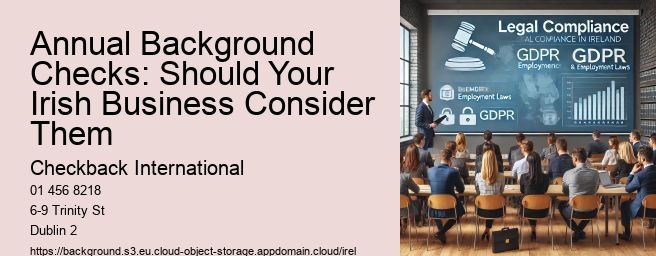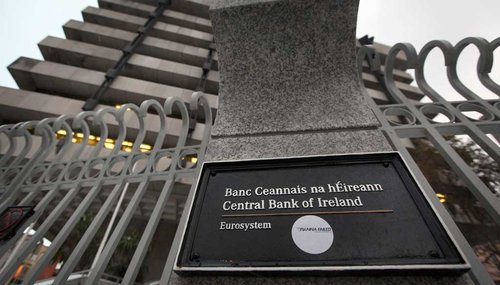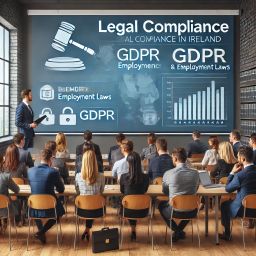

Candidate vetting requests full legal name, date of birth, address history, and identification numbers like social security or national identification numbers.
The service includes checks from multiple authorities, including Garda, DBS, and Department of Justice, with completion times of 5-10 working days.
The application processing combines various European criminal checks into one complete report.
3.Education and Qualification Verification: Validates academic credentials.
The ECRC system helps Irish employers conduct thorough recruitment while following security requirements. This standardized method allows quick candidate screening and hiring decisions across European jurisdictions.
Understanding PSA vetting standards remains necessary for security operations and meeting regulations.
The Impact of PSA Standards on Different Industries
For regulated sectors, fitness and probity assessments occur with the Central Bank and other inspectorates.
Many employers use regular re-screening schedules to keep information current for risk management.
Media Search (Negative Press)
Checkback International's screening services support regulatory compliance and fraud prevention. They provide comprehensive background checks for businesses across Ireland and Europe, verifying that candidates meet workplace security and integrity standards.
The PSA background check process starts when companies collect required information from potential employees, including full names, dates of birth, and addresses.
The system meets all Irish and European Data Protection legislation requirements while connecting with credit agencies and European inspectorates.


Does Previous Failed Vetting Affect Future PSA Background Checks?
Understanding PSA Vetting Standards
When applicants have lived in different EU countries, the ECRC combines records from each jurisdiction including Ireland's Gardaì, UK's DBS, and other national justice departments.

These checks show financial history and help determine an individual's accountability and reliability.
Medical records stay private between medical providers and patients unless release authorization is given.
Common Mistakes and How to Avoid Them

1.Incomplete Documentation: Check that all required documents are complete and submitted.
Data protection regulations allow candidates to request copies of their background screening reports.
Comprehensive Details on Consumer Credit Stress Checks
A background check in Ireland involves reviewing a person's criminal, financial, or personal records to assess their suitability for a role or position.
The duration can vary but typically takes between 1-2 weeks, depending on the type and complexity of the check.
Garda vetting is a specific type of background check required in Ireland for individuals working with children or vulnerable adults, involving checks against police records.
Yes, you must obtain consent from the individual before conducting any background checks in Ireland.
Not for all employees, but certain sectors such as healthcare and education may require comprehensive checks.
It includes checking for any criminal convictions or offences recorded against the individual.
Yes, individuals can request their own background checks in Ireland for personal review or to prepare for employment screenings.
Skipping background checks can lead to hiring unsuitable candidates, which may result in legal and reputational risks.
Yes, police clearance is a general criminal record check, while Garda vetting is specific to roles involving vulnerable groups and includes more detailed investigations.
You can request transcripts or degrees directly from educational institutions or use third-party services that specialize in educational verifications.
Information about spent convictions, certain types of personal data, and other protected characteristics under GDPR is off-limits unless specifically relevant and lawful to access.
International checks may involve additional complexities such as different laws, languages, and longer processing times.
No, background checks do not affect your credit score as they do not involve a credit inquiry that would impact the score.
Best practices include securing data in compliance with GDPR, limiting access to authorized personnel, and ensuring data is stored for only as long as necessary.
It depends on the industry and role, but typically every 2-3 years or when significant changes occur in the individual’s role or responsibility.
While not specific by law, many IT positions require checks due to access to sensitive or proprietary information.
GDPR regulates the processing of personal data, ensuring that background checks are conducted in a lawful, fair, and transparent manner.
Yes, but it must be done lawfully and with the individual’s consent, considering the relevance to the role.
Penalties can include fines, legal actions, and reputational damage, depending on the severity of the non-compliance.
Remote work has increased the importance of thorough background checks, especially for those in positions of trust or handling sensitive data.
Best practices include conducting similar checks as for permanent staff, especially if they have access to sensitive or critical areas.
Ensuring fairness involves following consistent procedures, obtaining consent, and allowing candidates to dispute inaccuracies.
Yes, it’s recommended to tailor background checks based on the specific risks and requirements of each position.
Signs include transparency about services, compliance with legal standards, positive reviews, and strong data protection practices.
Handling involves assessing the relevance to the job, discussing findings with the candidate, and considering legal and ethical implications.